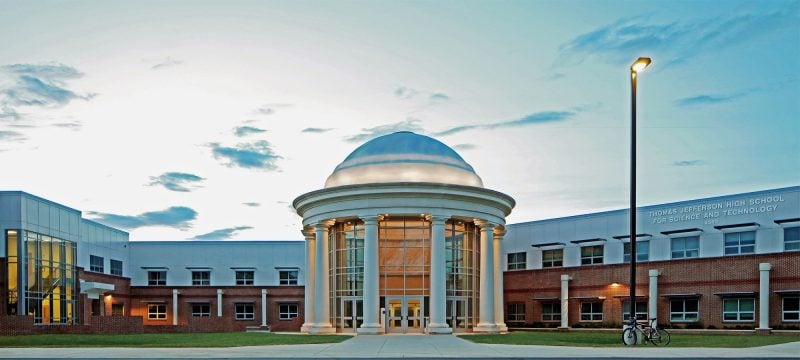The 30 Richest Places to Live in Massachusetts: Elite Communities and Real Estate Markets
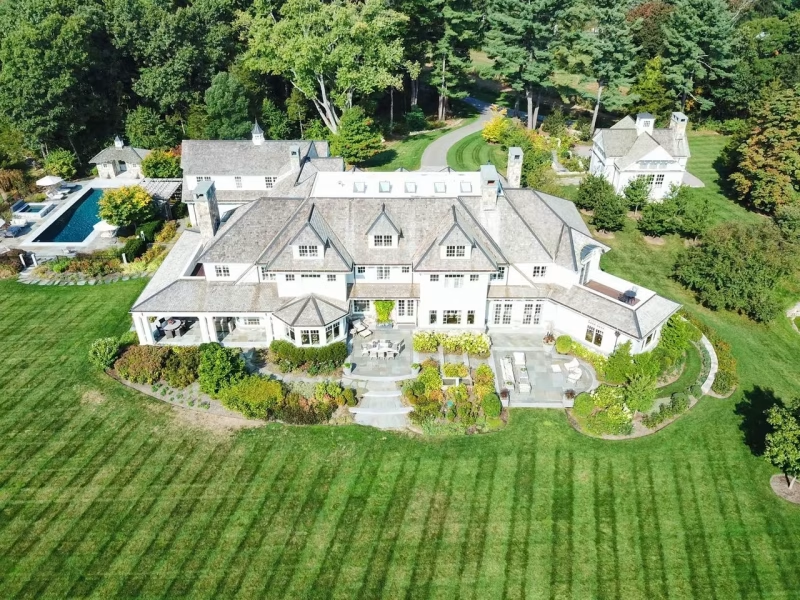
Massachusetts stands as the second wealthiest state in the nation, home to numerous affluent communities that combine historic charm with modern prosperity.
These exclusive areas feature impressive real estate values, top-rated educational systems, and exceptional amenities that consistently attract high-earning professionals and families.
The state’s wealthiest communities span from picturesque Boston suburbs to coastal towns, each offering distinct advantages that contribute to their economic status and desirability.
This comprehensive examination explores thirty of Massachusetts’ most prosperous places to live, analyzing the factors that drive their wealth and the lifestyle benefits they provide to residents.
Here are the 30 richest places to live in Massachusetts:
1. Dover
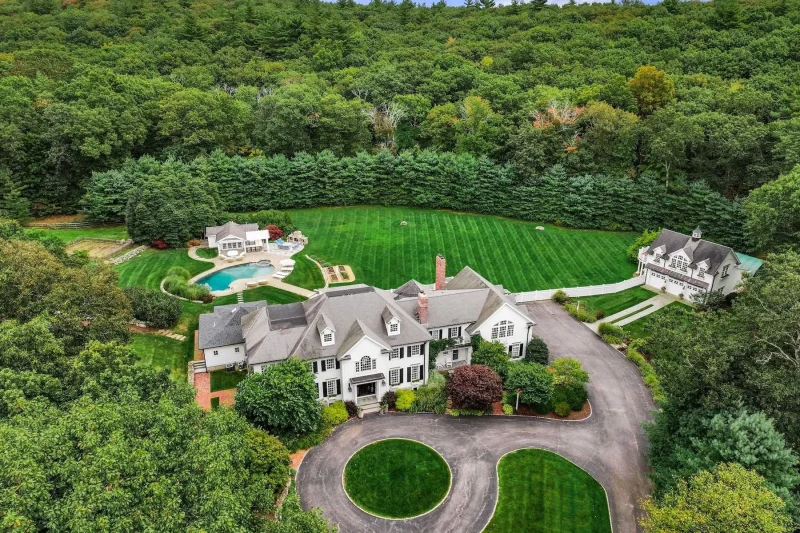
Dover stands as the wealthiest town in Massachusetts with an average household income of $421,148. This affluent community sits in Norfolk County, approximately 40 minutes from downtown Boston.
The town has a population of around 6,000 residents. Dover features sprawling estates and charming colonial homes in a rural setting.
The community is known for its nationally-ranked school systems and safe streets. These factors contribute to Dover’s family-friendly atmosphere.
Dover sits along the southern banks of the Charles River. The area maintains its predominantly residential character while offering easy access to Boston.
The town combines small-town charm with significant wealth. Many of the most affluent families in the Boston area choose Dover as their home base.
2. Weston
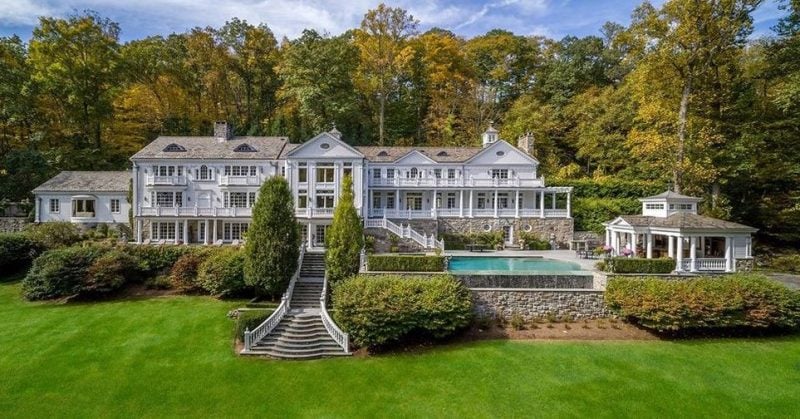
Weston consistently ranks as one of Massachusetts’ wealthiest communities. This affluent suburb sits in Middlesex County, approximately 15 miles west of downtown Boston.
The town maintains a population of around 11,261 residents. Weston attracts families seeking high-quality schools and well-maintained neighborhoods with historic charm.
Outdoor recreation defines much of Weston’s appeal. The community features nearly 100 miles of trails suitable for hiking, horseback riding, and cross-country skiing during winter months.
Golf courses provide additional recreational opportunities for residents. Conservation land surrounds much of the town, creating natural buffers and preserving scenic landscapes.
Weston’s proximity to Boston makes it attractive to professionals who commute to the city. The 30-minute drive allows residents to access urban amenities while enjoying suburban tranquility.
Historic homes characterize many of Weston’s neighborhoods. These properties contribute to the town’s reputation as one of Boston’s most desirable suburban communities.
3. Wellesley
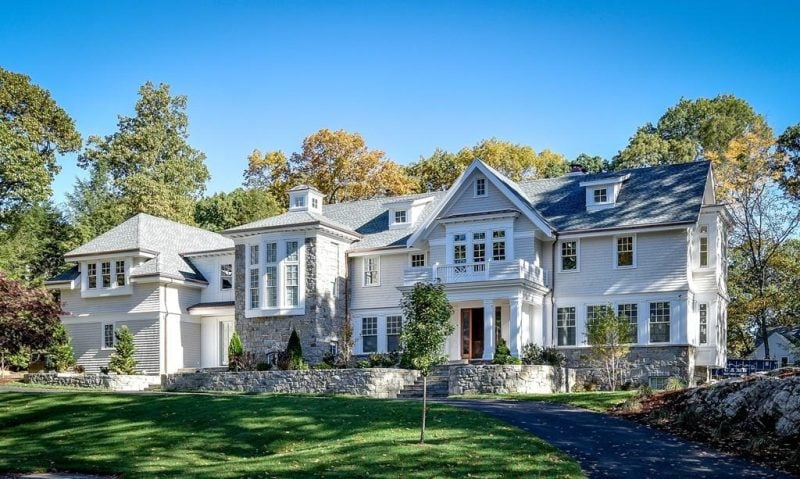
Wellesley stands as one of Massachusetts’ wealthiest communities, with a median household income exceeding $250,000 annually. The town’s mean income reaches $367,801, placing it among the top-earning municipalities in the state.
Located in Norfolk County, this affluent suburb sits approximately 15 miles from downtown Boston. The commute to the city takes about 35 minutes by car, making it attractive to high-earning professionals.
The town maintains a population of around 29,550 residents. Wellesley offers highly rated schools that draw families seeking quality education for their children.
The community features a vibrant downtown area with upscale shopping and dining options. Beautiful parks and trails provide recreational opportunities for residents throughout the year.
Wellesley consistently ranks among the top 50 wealthiest suburbs in America according to recent studies.
4. Lexington
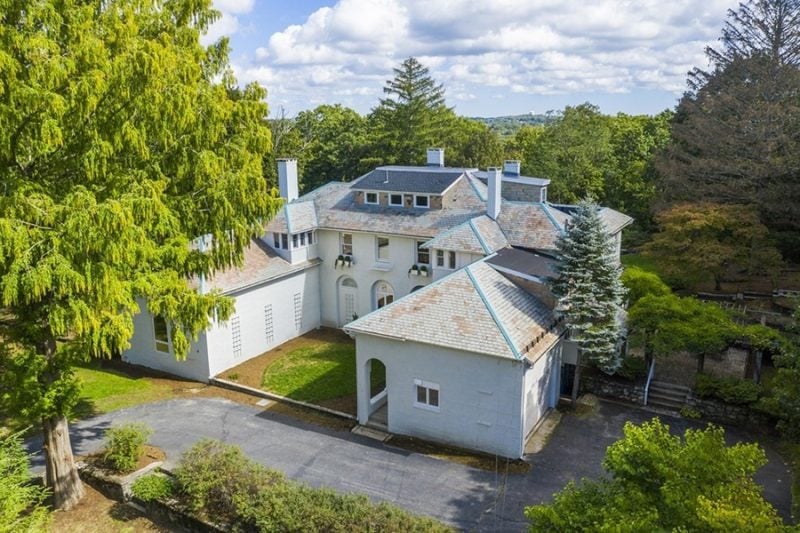
Lexington stands as one of Massachusetts’ most affluent communities, consistently ranking among the wealthiest suburbs in the United States. The town earned the #2 spot on GOBankingRates’ list of safest and richest U.S. cities to live in.
Located in Middlesex County, Lexington combines historical significance with modern prosperity. The community attracts wealthy residents seeking top-tier education and quality amenities.
The town features excellent public schools that draw families prioritizing educational excellence. These highly rated institutions contribute significantly to property values and community desirability.
Lexington’s real estate market reflects its affluent status, with home prices substantially above state and national averages. The combination of historic charm and contemporary luxury creates a unique residential environment.
Residents enjoy access to parks, recreational facilities, and cultural attractions while maintaining proximity to Boston’s employment centers.
5. Concord
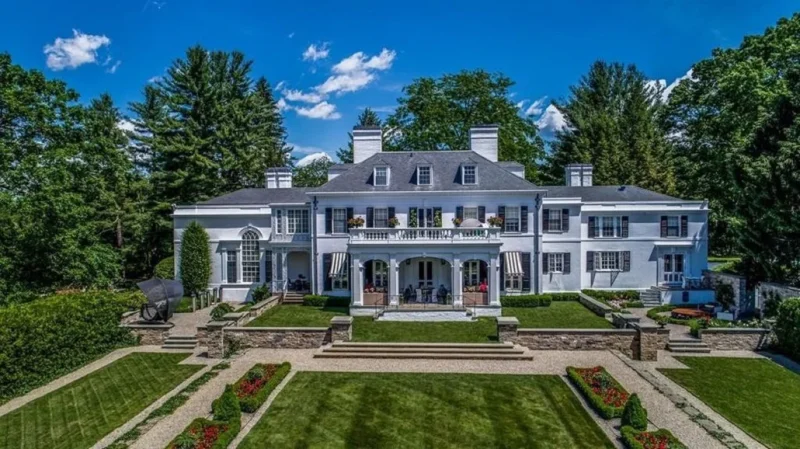
Concord stands out as one of Massachusetts’ most affluent communities, with home prices significantly exceeding the state average. The town’s median home value surpasses Massachusetts’ average of $477,554 by a substantial margin.
This historic town attracts wealthy residents who value both luxury and cultural significance. Concord’s neighborhoods represent some of the most desirable real estate markets in the state.
The community offers a unique blend of historical importance and modern affluence. Residents enjoy access to premium amenities while living in a town rich with American history.
Concord’s real estate market reflects the area’s desirability among high-income earners. The town consistently ranks among Massachusetts’ wealthiest communities based on property values and household income data.
6. Newton
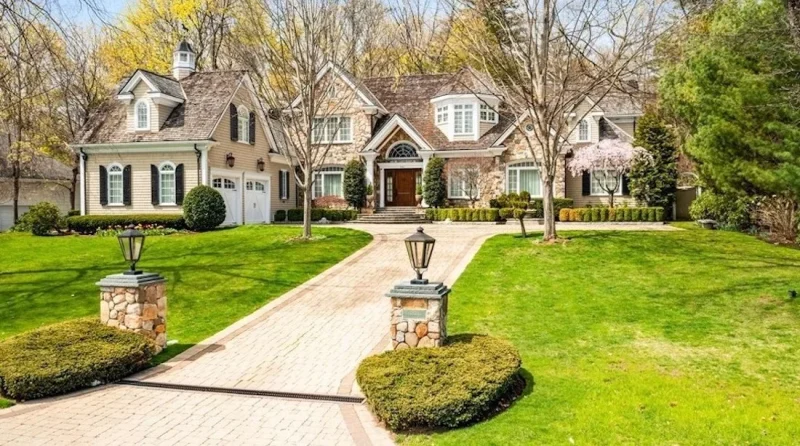
Newton stands out as the largest wealthy municipality in Massachusetts with 31,735 households. The city consistently ranks among the state’s most affluent communities.
Located just outside Boston, Newton offers residents easy access to urban amenities while maintaining suburban charm. The city features well-established neighborhoods with diverse housing options.
Newton’s public school system ranks among the best in Massachusetts. This educational excellence attracts families seeking quality schooling for their children.
The city’s proximity to major employment centers in Boston and Cambridge contributes to its economic strength. Many professionals choose Newton for its convenient commute options.
Newton’s tree-lined streets and parks provide recreational opportunities for residents. The community maintains a strong sense of civic engagement and local pride.
Property values in Newton remain consistently high due to demand from affluent buyers. The city’s reputation for safety and quality of life continues to draw wealthy residents.
7. Lincoln
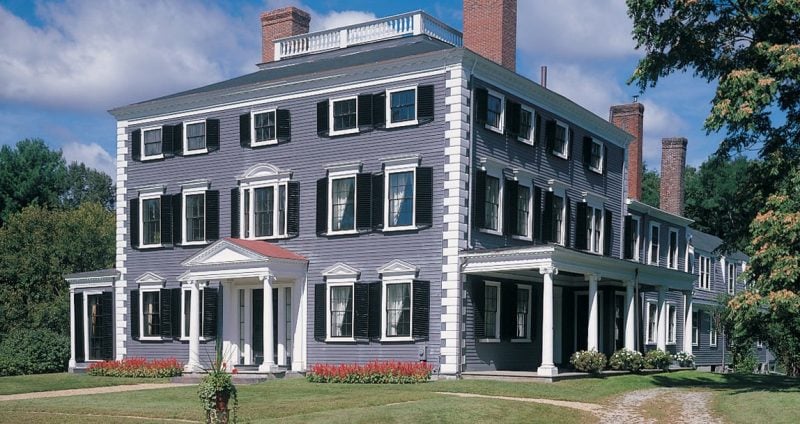
Lincoln stands as one of Massachusetts’ most affluent communities, located in Middlesex County approximately 15 miles west of Boston. The town maintains a rural character with extensive conservation land and historic properties.
The median household income in Lincoln significantly exceeds the state average. Many residents work in professional fields including finance, technology, and healthcare in nearby Boston and Cambridge.
Lincoln’s real estate market features high property values with many homes situated on large lots. The town offers excellent public schools that consistently rank among the state’s best performers.
The community provides easy access to major highways including Route 2 and Interstate 95. Lincoln’s location allows residents to enjoy small-town living while maintaining convenient commutes to urban employment centers.
8. Sudbury
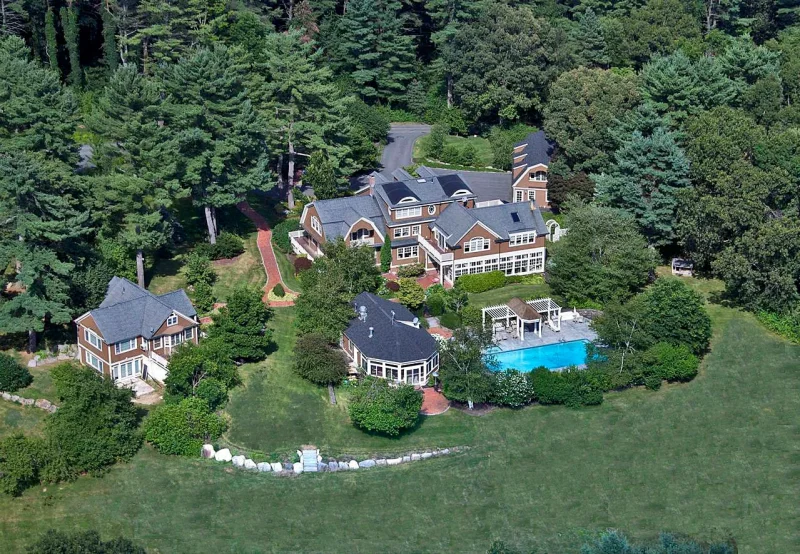
Sudbury ranks among Massachusetts’ most affluent communities, positioned approximately 20 miles west of Boston. The town maintains excellent connectivity to the metropolitan area while offering a suburban residential environment.
The median household income in Sudbury exceeds $192,000, placing it firmly within the state’s wealthiest municipalities. This income level reflects the community’s economic prosperity and educated workforce.
Sudbury attracts residents seeking quality public schools and family-oriented neighborhoods. The town features well-maintained residential areas with a mix of colonial and contemporary homes.
The community benefits from its strategic location in MetroWest, providing access to major employment centers while maintaining a distinct suburban character. Sudbury offers recreational facilities and conservation areas that appeal to residents prioritizing outdoor activities.
Professional families constitute a significant portion of Sudbury’s population, drawn by the combination of educational resources and proximity to Boston’s job market.
9. Walpole
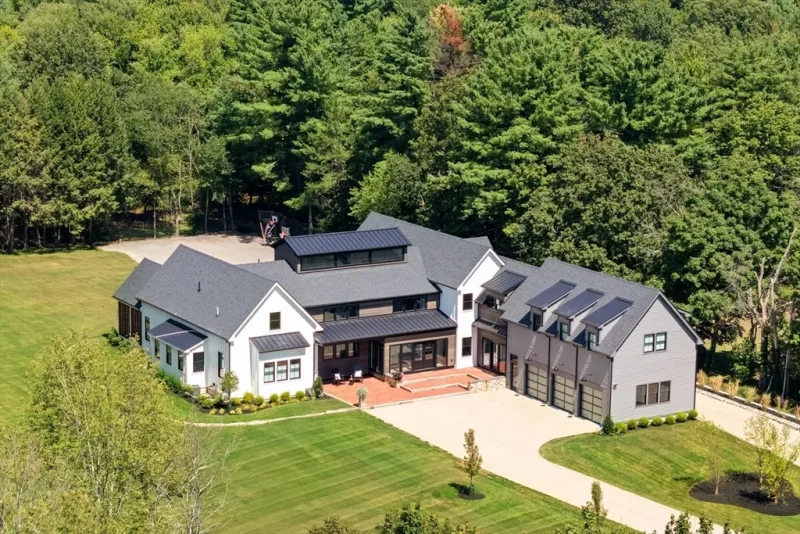
Walpole stands as one of Massachusetts’ most affluent communities, located in Norfolk County approximately 18 miles southwest of Boston. The town combines suburban charm with easy access to major employment centers.
The median household income in Walpole significantly exceeds the state average. Property values reflect the community’s desirability, with well-maintained homes and established neighborhoods.
Walpole offers excellent public schools that consistently rank among the top performers in Massachusetts. The town’s commitment to education attracts families seeking quality academic opportunities for their children.
The community features well-developed recreational facilities and parks. Residents enjoy access to golf courses, walking trails, and youth sports programs that enhance the quality of life.
Walpole’s strategic location provides convenient commuter rail access to Boston and major highways. This transportation infrastructure supports the town’s appeal to professionals working in the greater Boston area.
10. Needham
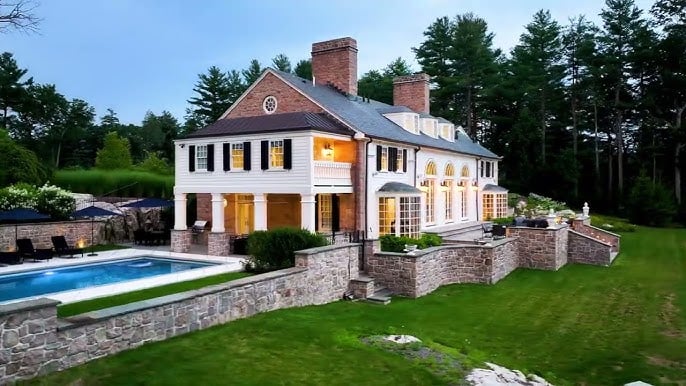
Needham stands as one of Massachusetts’ most affluent communities, earning recognition among the top 50 wealthiest suburbs in the country. This prestigious town consistently attracts high-income residents seeking quality living near Boston.
The community boasts excellent public schools that rank among the state’s best. Families specifically choose Needham for its strong educational system and safe neighborhoods.
Located in Norfolk County, Needham offers convenient access to downtown Boston while maintaining its suburban character. The town features well-maintained parks, recreational facilities, and a charming downtown area.
Property values in Needham reflect its desirability, with homes commanding premium prices. The town’s median household income significantly exceeds both state and national averages.
Needham’s combination of location, schools, and community amenities continues to drive demand among affluent buyers. The town successfully balances residential tranquility with economic prosperity.
11. Westwood
Westwood stands as one of Massachusetts’ most affluent suburban communities. The town sits approximately 20 miles southwest of downtown Boston.
This Norfolk County community attracts wealthy professionals who commute to Boston. Westwood offers excellent public schools that consistently rank among the state’s best.
The median household income exceeds $150,000. Property values remain high due to strong demand from families seeking quality education and suburban amenities.
Westwood features well-maintained neighborhoods with colonial and contemporary homes. The town provides extensive recreational facilities including parks, walking trails, and sports complexes.
Corporate headquarters and business parks contribute to the local economy. The community maintains low crime rates and efficient municipal services.
Transportation access includes proximity to major highways and commuter rail service to Boston.
12. Brookline
Brookline stands as one of Massachusetts’ most affluent communities, positioned just west of Boston. The town boasts a median household income exceeding $117,000.
Home values in Brookline frequently surpass $1 million. This consistently places the community among the wealthiest locations in the state.
The town sits approximately four miles from downtown Boston. This proximity offers residents access to urban amenities while maintaining suburban character.
Brookline has received national recognition for its quality of life. The community was recently named the best place to live in America by U.S. News & World Report.
The town ranks among the top 50 safest and wealthiest places to live nationwide. Brookline’s combination of high income levels, excellent schools, and convenient location contributes to its desirability among affluent residents.
13. Sharon
Sharon stands as one of Massachusetts’ most affluent suburban communities, located in Norfolk County approximately 22 miles southwest of Boston. The town attracts wealthy residents with its combination of excellent schools and convenient commuter access to the city.
The community features a median household income significantly above the state average. Many residents work in Boston’s financial and technology sectors while enjoying Sharon’s quieter suburban lifestyle.
Sharon’s real estate market reflects its desirable status, with home values consistently ranking among the highest in the region. The town offers a mix of contemporary estates and well-maintained colonial homes on spacious lots.
The area provides top-rated public schools that draw families seeking quality education. Sharon also maintains several parks and recreational facilities that contribute to its appeal among affluent households.
14. Medfield
Medfield ranks among Massachusetts’ wealthiest communities, located approximately 17 miles southwest of Boston in Norfolk County. The town has established itself as an attractive destination for affluent families seeking suburban living within commuting distance of the capital.
The median household income in Medfield reaches $289,308, reflecting the community’s strong economic status. This income level places it firmly among the state’s most prosperous municipalities.
Housing costs in Medfield reflect the area’s desirability and wealth. The typical home value stands at $875,444, with properties experiencing steady appreciation over recent years.
The town combines residential appeal with proximity to Boston’s employment opportunities. Many residents work in professional positions that support the community’s high income levels and maintain its status as one of Massachusetts’ premier wealthy enclaves.
15. Acton
Acton stands as one of Massachusetts’ most affluent suburban communities. The town sits in Middlesex County, approximately 25 miles northwest of Boston.
This historic community maintains a strong residential character with well-preserved colonial architecture. Acton attracts families seeking excellent public schools and a quiet suburban lifestyle.
The town’s median household income significantly exceeds the state average. Property values reflect the area’s desirability and proximity to major employment centers.
Acton offers easy access to Route 2 and commuter rail service to Boston. The community features numerous parks, conservation lands, and recreational facilities.
Local amenities include historic sites, walking trails, and community programs. The town center provides essential services while maintaining its New England charm.
Acton’s combination of educational excellence, natural beauty, and convenient location contributes to its wealthy status.
16. Wilbraham
Wilbraham stands as one of Massachusetts’ most desirable suburban communities. The town attracts affluent families seeking quality schools and peaceful residential living.
Located in Hampden County, Wilbraham offers a blend of rural charm and modern amenities. The community maintains low crime rates and well-maintained neighborhoods.
The town’s median household income significantly exceeds the national average. Professional families dominate the demographic, with many commuting to Springfield and Hartford for work.
Wilbraham’s real estate market features substantial single-family homes on generous lots. Property values remain strong due to the town’s reputation and school system quality.
The community provides excellent recreational facilities and maintains numerous parks. Residents enjoy access to golf courses, hiking trails, and seasonal outdoor activities throughout the area.
17. Norfolk
Norfolk stands as one of Massachusetts’ most affluent communities, consistently ranking among the state’s wealthiest places to live. This small town in Norfolk County attracts residents with its combination of rural charm and proximity to Boston.
The community features expansive properties and well-maintained neighborhoods that reflect its high income levels. Many residents work in professional fields and commute to nearby urban centers.
Norfolk’s median household income significantly exceeds both state and national averages. The town’s real estate market commands premium prices, with homes often valued well above typical Massachusetts properties.
Local amenities include quality schools and recreational facilities that serve the community’s needs. The town maintains its residential character while providing easy access to major highways and employment centers in the greater Boston area.
18. Waltham
Waltham stands out as one of Massachusetts’ most affluent communities. The city combines historical significance with modern prosperity.
Known as the “Watch City,” Waltham earned its nickname from the famous Waltham Watch Factory. This Industrial Revolution-era company played a crucial role in the city’s development.
The city offers residents rich cultural amenities. Museums showcase the area’s industrial heritage while art galleries provide contemporary attractions.
Higher education institutions contribute to Waltham’s economic strength. These schools bring intellectual capital and stable employment to the region.
Families find Waltham particularly appealing for its blend of history and opportunity. The city maintains its historic character while supporting modern lifestyles.
Waltham’s location provides easy access to Boston’s employment centers. This proximity allows residents to benefit from urban opportunities while enjoying a smaller city atmosphere.
19. Hingham
Hingham stands as one of Massachusetts’ most affluent coastal communities. This historic South Shore town combines waterfront living with proximity to Boston.
The town features a median household income well above the state average. Residents enjoy access to excellent public schools and recreational facilities.
Hingham’s downtown area offers upscale shopping and dining options. The community maintains its colonial charm through preserved historic buildings and tree-lined streets.
Many wealthy professionals choose Hingham for its commuter rail access to Boston. The town provides a suburban lifestyle while remaining connected to urban employment centers.
Waterfront properties command premium prices throughout the community. Hingham Harbor adds to the town’s appeal for boating enthusiasts and those seeking coastal living.
20. Harvard
Harvard sits in Worcester County, Massachusetts, approximately 35 miles northwest of Boston. This small town maintains a rural character while offering proximity to major metropolitan areas.
The community features historic colonial architecture and well-preserved town centers. Harvard’s location provides residents with scenic landscapes and outdoor recreational opportunities.
The town attracts affluent families seeking quality educational opportunities and peaceful suburban living. Harvard offers highly rated public schools that consistently rank among the state’s best performers.
Real estate in Harvard commands premium prices due to limited inventory and high demand. The area features large residential lots and custom-built homes that appeal to wealthy buyers.
Harvard’s median household income significantly exceeds both state and national averages. The town’s economic stability stems from residents employed in professional services, technology, and finance sectors in nearby Boston.
21. Marblehead
Marblehead sits along Massachusetts’ North Shore, approximately 20 miles northeast of Boston. This historic coastal town attracts affluent residents with its maritime heritage and scenic harbor views.
The town’s median household income reaches around $120,000, placing it among Massachusetts’ wealthier communities. Marblehead’s economy benefits from its proximity to Boston while maintaining its distinct coastal character.
Historic colonial architecture lines the town’s narrow streets. Many homes date back centuries, contributing to Marblehead’s reputation as one of New England’s best-preserved historic communities.
The harbor serves as both a working port and recreational marina. Sailing remains popular among residents, with several yacht clubs operating in the area.
Marblehead’s public schools consistently rank well statewide. The town’s commitment to education attracts families seeking quality academic programs for their children.
Real estate values reflect the town’s desirability and waterfront location. Properties near the harbor command premium prices due to water access and views.
22. Westborough
Westborough ranks among Massachusetts’ most affluent communities with a median household income exceeding $111,000. This Worcester County town combines economic prosperity with suburban appeal.
The community offers residents small-town charm while maintaining strong financial stability. Home prices in Westborough significantly exceed the state average of $477,554.
Located in central Massachusetts, Westborough provides access to both urban amenities and peaceful residential living. The town attracts families and professionals seeking upscale suburban communities.
Local real estate markets reflect the area’s desirability and economic strength. Westborough consistently demonstrates higher property values compared to similar-sized Massachusetts communities.
The town’s wealth stems from its educated population and proximity to major employment centers. Residents benefit from quality municipal services and well-maintained infrastructure that wealth enables.
23. Boxborough
Boxborough is a small town in Middlesex County that combines rural charm with proximity to major employment centers. The town sits approximately 25 miles northwest of Boston.
The community maintains a low population density with spacious properties and wooded areas. Many residents commute to technology companies along Route 128 and Interstate 495.
Boxborough offers highly rated public schools that attract families seeking quality education. The town’s location provides easy access to major highways while preserving a quiet residential atmosphere.
Housing stock consists primarily of single-family homes on large lots. The area features several conservation areas and recreational facilities for outdoor activities.
The town’s median household income reflects its appeal to professionals working in Boston’s suburbs. Boxborough successfully balances small-town living with access to urban amenities and employment opportunities.
24. Manchester-by-the-Sea
Manchester-by-the-Sea sits on Cape Ann’s picturesque coastline in Essex County. This exclusive North Shore community maintains its reputation as one of Massachusetts’ most affluent areas.
The town boasts a median household income exceeding $140,000, placing it among the state’s wealthiest municipalities. Its proximity to Boston, just 30 miles north, makes it attractive to high-earning professionals.
Manchester-by-the-Sea’s real estate market reflects its affluent status. Home sales in 2023 averaged $1,648,494, significantly above the state average of $477,554.
Originally a fishing village, the community transformed during the mid-19th century into an upscale residential destination. The town gained national recognition as the setting for the Oscar-winning 2016 film of the same name.
Residents enjoy stunning New England charm with coastal scenery and well-preserved historic architecture. Boston Magazine has recognized Manchester-by-the-Sea as one of the top places to live in Massachusetts.
25. Carlisle
Carlisle stands as one of Massachusetts’ most affluent communities, located in Middlesex County. This small town maintains a population of approximately 5,237 residents.
The town boasts a mean household income of $264,092, placing it among the state’s wealthiest municipalities. Its proximity to Boston makes it attractive to high-earning professionals.
Carlisle offers residents a 40-minute commute to downtown Boston. The town features highly rated public schools that draw families seeking quality education.
The community maintains its small-town charm while providing access to urban amenities. Historic architecture and rural landscapes characterize much of the area.
Real estate values reflect the town’s desirability among Massachusetts’ wealthy residents. The combination of excellent schools, convenient location, and affluent demographics continues to attract high-income households to this Middlesex County community.
26. Sutton
Sutton is a town located in Worcester County, Massachusetts, with a population of approximately 9,000 residents. The community sits about 45 minutes southwest of Boston.
The town features a rural character with historic New England architecture. Sutton maintains several working farms and open spaces that contribute to its agricultural heritage.
Housing in Sutton consists primarily of single-family homes on larger lots. The median home value reflects the town’s appeal to families seeking space and privacy outside urban areas.
Sutton operates its own school system, serving students from kindergarten through high school. The schools maintain solid academic standards within the community.
Residents have access to recreational facilities including Sutton Town Forest and several lakes. These natural areas provide opportunities for hiking, fishing, and seasonal activities.
The town’s location provides reasonable access to employment centers in Worcester and the greater Boston metropolitan area while maintaining a quiet residential atmosphere.
27. Beverly
Beverly stands as one of Massachusetts’ notable affluent communities along the North Shore. The city combines historic charm with modern amenities that attract wealthy residents.
Home prices in Beverly exceed the state average of $477,554. This premium reflects the desirability of the area’s neighborhoods and strong real estate market.
The city offers residents access to excellent schools and cultural attractions. Beverly’s location provides convenient access to both Boston and coastal recreation areas.
Historic architecture defines many of Beverly’s most sought-after neighborhoods. These areas feature well-preserved homes that maintain their character while offering modern luxury.
Beverly’s economy benefits from its proximity to major employment centers. Professional residents commute to Boston while enjoying the benefits of suburban living in a prestigious North Shore community.
28. Ipswich
Ipswich ranks as the 28th wealthiest place in Massachusetts with a median household income of approximately $96,800. This coastal community sits in Essex County and offers residents a unique blend of historical significance and modern amenities.
The town attracts professionals and families who value seaside living combined with convenient access to urban centers. Ipswich maintains its historic charm while providing upscale residential options for its residents.
The community benefits from its coastal location, offering scenic waterfront views and recreational opportunities. Its proximity to major employment centers makes it appealing to commuters seeking a quieter residential environment.
Ipswich combines small-town character with the amenities expected in affluent Massachusetts communities. The town’s economic stability and desirable location contribute to its position among the state’s wealthiest places.
29. Swampscott
Swampscott sits on Massachusetts’ North Shore, approximately 15 miles northeast of Boston. This coastal town has established itself as an affluent residential community along Massachusetts Bay.
The town features a median family income of $92,795, placing it among the state’s wealthier municipalities. Despite its affluent status, Swampscott maintains accessibility for middle-class families.
Originally a summer resort destination, Swampscott has transformed into a year-round residential community. The town includes the village of Beach Bluff and offers ocean views to many residents.
Swampscott provides residents with excellent public schools serving pre-kindergarten through grade 12. The community maintains strong public safety services and fosters a family-friendly environment.
The town’s location offers convenient access to Boston while providing a quieter coastal lifestyle. Its North Shore position gives residents both suburban amenities and seaside charm.
30. Watertown
Watertown sits along the Charles River in Middlesex County, positioned just west of Boston and Cambridge. The city maintains a strategic location that provides residents with convenient access to major employment centers throughout the metropolitan area.
The community spans approximately 4.1 square miles and houses around 35,000 residents. Watertown’s compact size creates a walkable environment with established neighborhoods and local amenities.
The median household income in Watertown reaches approximately $82,000. This income level reflects the city’s appeal to working professionals who commute to Boston and surrounding areas.
Watertown offers a mix of housing options, from historic single-family homes to modern condominiums. The real estate market remains competitive due to the city’s proximity to Cambridge and Boston.
The Arsenal Yards development has transformed portions of Watertown into a modern mixed-use district. This area features retail shops, restaurants, and residential units that attract young professionals and families.
Key Factors That Shape Massachusetts’ Wealthiest Communities
Massachusetts’ wealthiest communities develop through specific economic drivers centered around Boston’s metropolitan area, demographic patterns favoring highly educated professionals, and historical advantages that established long-term prosperity.
Economic Drivers and Employment Opportunities
The Boston metropolitan area serves as the primary economic engine driving wealth concentration across Massachusetts. Most affluent communities sit within a 40-minute drive of downtown Boston, creating accessible commuter towns for high-earning professionals.
Technology and biotechnology sectors generate substantial wealth through companies concentrated in Cambridge, Boston, and Route 128 corridor. These industries offer high-paying positions that support premium housing markets in surrounding suburbs.
Financial services contribute significantly to regional wealth. Boston’s status as a major financial center creates demand for luxury housing in nearby communities like Dover, Weston, and Wellesley.
Higher education institutions including Harvard, MIT, and other prestigious universities attract well-compensated faculty and administrators. These professionals often settle in affluent suburbs, driving up property values and median incomes.
Healthcare and medical research provide another wealth source. Massachusetts’ concentration of world-class hospitals and research facilities creates high-income opportunities for medical professionals and researchers.
Self-made billionaires like Jim Davis of New Balance demonstrate the state’s entrepreneurial success. These business leaders often reside in Massachusetts’ most exclusive communities, further elevating local wealth statistics.
Demographic Trends
Educational attainment serves as a primary wealth indicator in Massachusetts’ richest communities. Residents typically hold advanced degrees from prestigious universities, correlating directly with higher earning potential.
Professional occupations dominate these areas. Lawyers, doctors, executives, and technology professionals comprise the majority of residents in towns like Dover, which maintains an average household income of $421,148.
Age demographics tend toward established professionals in their peak earning years. These communities attract residents aged 35-55 who have built substantial career equity and seek premium living environments.
Household composition frequently includes dual-income professional couples. This demographic pattern significantly elevates median household income figures compared to single-income households.
Population stability characterizes these wealthy areas. Low turnover rates allow communities to maintain their exclusive character and continue attracting similar demographic groups over time.
Historical Development
Colonial-era foundations established many of Massachusetts’ wealthiest communities. Towns like Concord, Lexington, and Wellesley built early prosperity through strategic locations and favorable geography.
Railroad development in the 19th century connected suburban areas to Boston’s economic center. Communities with early rail access developed into commuter towns for wealthy Boston businessmen and professionals.
Post-World War II suburban expansion transformed many agricultural areas into exclusive residential communities. Veterans’ benefits and economic growth enabled planned development of upscale neighborhoods.
Zoning regulations implemented in the mid-20th century protected community character through minimum lot sizes and building restrictions. These policies maintained exclusivity and property values over decades.
Legacy wealth from old Boston families contributed to sustained prosperity in certain communities. Generational wealth transfer helped establish and maintain the affluent character of specific towns and neighborhoods.
Lifestyle and Amenities in Affluent Massachusetts Areas
Wealthy Massachusetts communities provide residents with exceptional educational institutions and sophisticated cultural amenities. These areas combine prestigious schools with vibrant community programming and cultural offerings.
Education and Academic Excellence
The wealthiest Massachusetts towns consistently rank among the state’s top school districts. Towns like Weston, Dover, and Wellesley maintain student-teacher ratios below 15:1 and graduation rates exceeding 95%.
Many affluent communities allocate $15,000 to $25,000 per student annually. This funding supports advanced placement programs, specialized STEM laboratories, and comprehensive arts facilities.
Private educational options flourish in these areas. Residents have access to elite preparatory schools like Phillips Academy Andover and Milton Academy. These institutions charge tuition ranging from $40,000 to $65,000 annually.
Higher education proximity adds significant value. Communities within 30 miles of Boston benefit from Harvard, MIT, and other prestigious universities. This creates networking opportunities and attracts educated professionals to the area.
Educational support extends beyond traditional schooling. Wealthy towns offer extensive tutoring services, test preparation programs, and enrichment activities. Libraries in these communities feature state-of-the-art technology centers and comprehensive digital resources.
Cultural Offerings and Community Life
Affluent Massachusetts neighborhoods feature sophisticated cultural programming year-round. Towns like Brookline and Cambridge host outdoor concerts, art festivals, and farmers markets throughout the warmer months.
Historic preservation remains a priority in wealthy communities. Many towns maintain colonial-era buildings, historic districts, and heritage trails. Residents participate in historical societies and preservation committees.
Recreation facilities in these areas include:
- Private golf courses and country clubs
- Tennis facilities with indoor courts
- Community sailing programs
- Hiking and walking trails
- Premium fitness centers
Shopping and dining reflect residents’ refined tastes. Downtown areas feature boutique retailers, gourmet markets, and farm-to-table restaurants. Many communities host wine tastings, cooking classes, and artisan markets.
Community centers in affluent towns offer diverse programming. Activities range from art classes and book clubs to investment seminars and travel groups. These venues often feature professional-grade theaters and exhibition spaces.
Social clubs and organizations create tight-knit communities. Garden clubs, charitable foundations, and professional associations provide networking and volunteer opportunities for residents.





